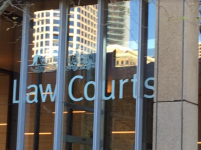Drug Possession Charge Quashed Due to Illegal Search

A man was recently acquitted of a conviction of drug possession in the NSW District Court, when he appealed his conviction by the Local Court on the ground that a police officer’s search was unlawful.
The case reiterates that police don’t have the power to randomly search people or their vehicles – they must have a suspicion on reasonable grounds for doing so.
Police search powers
The police power to stop and search a person or a vehicle without a warrant are contained in the Law Enforcement (Powers and Responsibility) Act (LEPRA) 2002.
Section 21 of that Act provides that an officer may stop, search and detain a person without a warrant if he or she “suspects on reasonable grounds” that the individual possesses stolen property, has anything used, or intended to be used, to commit an offence, is carrying a dangerous item or weapon, or is in possession of illegal drugs.
Section 36 of the Act provides that police may stop, search and detain a vehicle without a warrant if they have a reasonable suspicion that it contains stolen items, has been used in an offence, is carrying anything used, or to be used, in an offence, or is carrying any illicit substances.
Officers can also search a vehicle if it is in a public place or in the vicinity of a school, and they reasonably suspect it contains a dangerous item, or is putting the public at risk.
Leading case on reasonable suspicion
Although it predates the LEPRA, the 2001 NSW Court of Criminal Appeal (NSWCCA) case R v Rondo is considered the leading authority on the meaning of “reasonable suspicion.” It has been cited in numerous post-LEPRA cases.
On 19 February 1999, 20-year-old John Rondo was driving his mother’s sports car that had some rear panel damage down Epping Road. Two police officers spotted this and drove up beside the vehicle. The officers began questioning Rondo, who said he didn’t own the car. The officers then pulled him over.
As Constable Barnes approached the car, he noticed Mr Rondo lean across and place something in the glovebox. The officer saw this as reasonable suspicion to search the car. He found $860 on the console and 9.4 grams of cannabis in the glovebox.
On a later search of Rondo’s home, officers located 215 grams of cannabis and 59 plants.
A District Court jury found Mr Rondo guilty of supplying a prohibited drug and cultivation of a prohibited plant. The trial judge found the arresting officer had formed a reasonable suspicion when he saw Rondo lean over and place something in the glovebox.
Mr Rondo was given a two-year suspended sentence. He appealed his conviction to the NSWCCA.
Definition of ‘reasonable suspicion’
The justices of the NSWCCA said the following of “reasonable suspicion”:
“(a) A reasonable suspicion involves less than a reasonable belief but more than a possibility… A reason to suspect that a fact exists is more than a reason to consider or look into the possibility of its existence.
“(b) Reasonable suspicion is not arbitrary. Some factual basis for the suspicion must be shown. A suspicion may be based on hearsay material or materials which may be inadmissible in evidence. The materials must have some probative value.
“(c) What is important is the information in the mind of the police officer stopping the person or the vehicle or making the arrest at the time he did so… In answering that question regard must be had to the source of the information and its content, seen in the light of the whole of the surrounding circumstances.”
While the NSWCCA reasoned that the trial judge was open to find the officer had a reasonable ground to conduct the search after Mr Rondo put something in the glovebox, the court found that the attending officer had unlawfully stopped the car in the first instance.
Their Honours found that a young man driving someone else’s sports car was “not sufficient to give rise to a reasonable suspicion” to stop the vehicle. For this reason, the NSWCCA found the search was illegal, applied section 138 of the Evidence Act 1995 (NSW) to exclude the ensuing evidence of drugs and ultimately acquitted Rondo of all charges.
Section 138 states that evidence that was obtained improperly or in contravention of an Australian law, or in consequence of an impropriety or of a contravention of an Australian law, is not to be admitted unless the desirability of admitting the evidence outweighs the undesirability of admitting evidence that has been obtained in the way in which the evidence was obtained.
Stopped by police
The judgment in Rondo was cited this month by NSW District Court Judge Scotting in summing up the case Daniel Fromberg v R. The recent case once again rested on whether a search by a NSW police officer had conducted was lawful.
On 14 August 2015, Mr Fromberg was stopped by police while riding his motorcycle, as he hadn’t strapped up his helmet. Senior Constable Jahnke said he became suspicious that Fromberg might be under the influence of alcohol or an illegal substance, as he was acting “scattered.”
The officer conducted enquiries over the radio and found that Fromberg had a prior drug conviction, and was currently out on bail for charges of manufacturing an illegal drug.
Constable Jahnke asked Mr Fromberg if he had ice sores on his face, to which the man replied, “Yeah, I just can’t get rid of them.” The officer said Mr Fromberg was hesitant to get off his bike.
Based on these observations, the officer decided to search the man on suspicion of methamphetamine possession.
Strip searched
Mr Fromberg was taken to the front of the police vehicle, where two officers went through the pockets of his jacket, while another searched his bag.
Constable Jahnke then directed Fromberg to unbuckle his belt so that he could see behind it. The officer then went to quickly reach inside Mr Fromberg’s jeans to search around the elastic of his underwear. Fromberg pulled back and said, “No, fuck off, you can’t do that.”
Mr Fromberg was then handcuffed, and with three other officers in close proximity, Constable Jahnke pulled out the man’s jeans and underwear. The officer observed a small plastic bag containing drugs sitting above Fromberg’s penis.
Convicted in the Local Court
On 31 October last year, Mr Fromberg was found guilty in Waverley Local Court on one count of possession of an illicit substance contrary to section 10(1) of the Drug Misuse and Trafficking Act 1985.
The offence carries a maximum penalty of 2 years imprisonment and/or a fine of up to $2,200.
During the hearing, Magistrate Stapleton found there were reasonable grounds to conduct the search due to Mr Fromberg’s reaction to the officer reaching into his jeans.
Her Honour found that the search had been conducted in the least invasive way, as it didn’t involve the removal of Fromberg’s clothes or the visual inspection of his body.
Search was illegal and evidence should be excluded
Mr Fromberg appealed his conviction to the District Court on the ground that the search was conducted in an illegal manner, and the evidence should be excluded as under section 138 of the Evidence Act,
Judge Scotting found that the strip search had been conducted unlawfully for a number of reasons.
Prior to Fromberg pulling back from Constable Jahnke, the officer had no reasonable suspicion to conduct a strip search. No frisk search of Mr Fromberg had been conducted, which might have given the officer a reasonable suspicion to undertake the more invasive strip search.
Section 33(4) of the LEPRA states that “a strip search must not involve a search of a person’s body cavities or an examination of the body by touch.” When Constable Jahnke decided to reach into the elastic of Fromberg’s underwear, he was clearly touching the man and therefore breached the law.
Section 33(1) of the Act provides that a strip search be conducted in private, without the presence of anyone of the opposite sex, or any person deemed unnecessary for the purposes of the search. However, the strip search of Fromberg was conducted on a public street, with three other officers looking on.
As these two provisions were breached when the officer reached into Fromberg’s pants, the subsequent search that revealed the drugs was unlawful, as it was done based on a suspicion gained by a reaction to an unlawful act.
Judge Scotting found that Fromberg was entitled to insist on his legal rights by resisting the initial illegal strip search, and that “lawful resistance cannot be used as to provide a basis for reasonable suspicion.”
Mr Fromberg’s conviction was quashed, and the penalty imposed by the magistrate was set aside.







